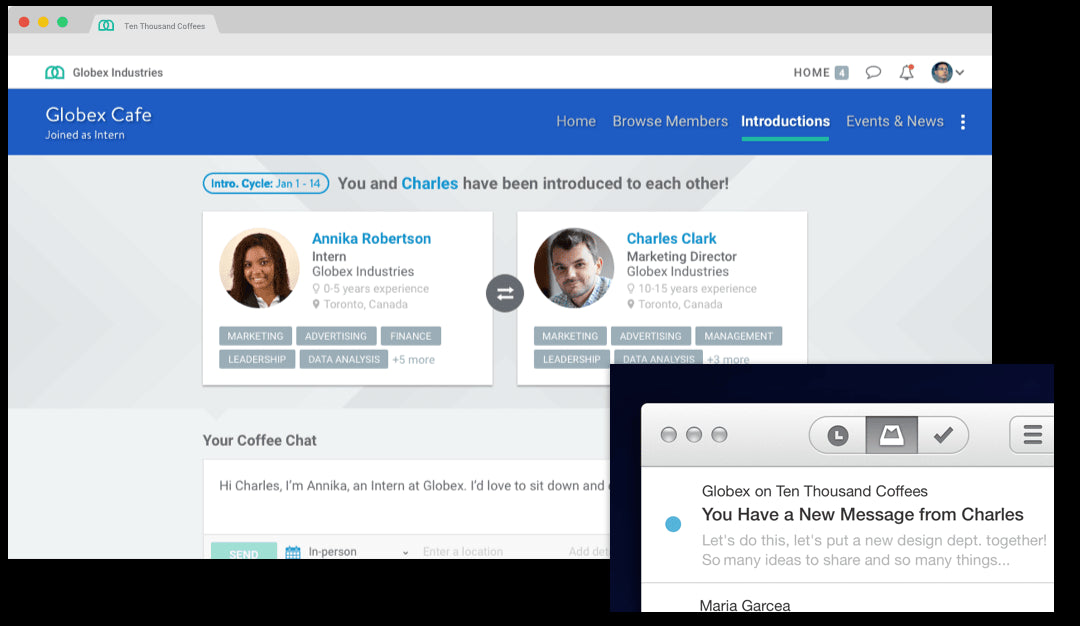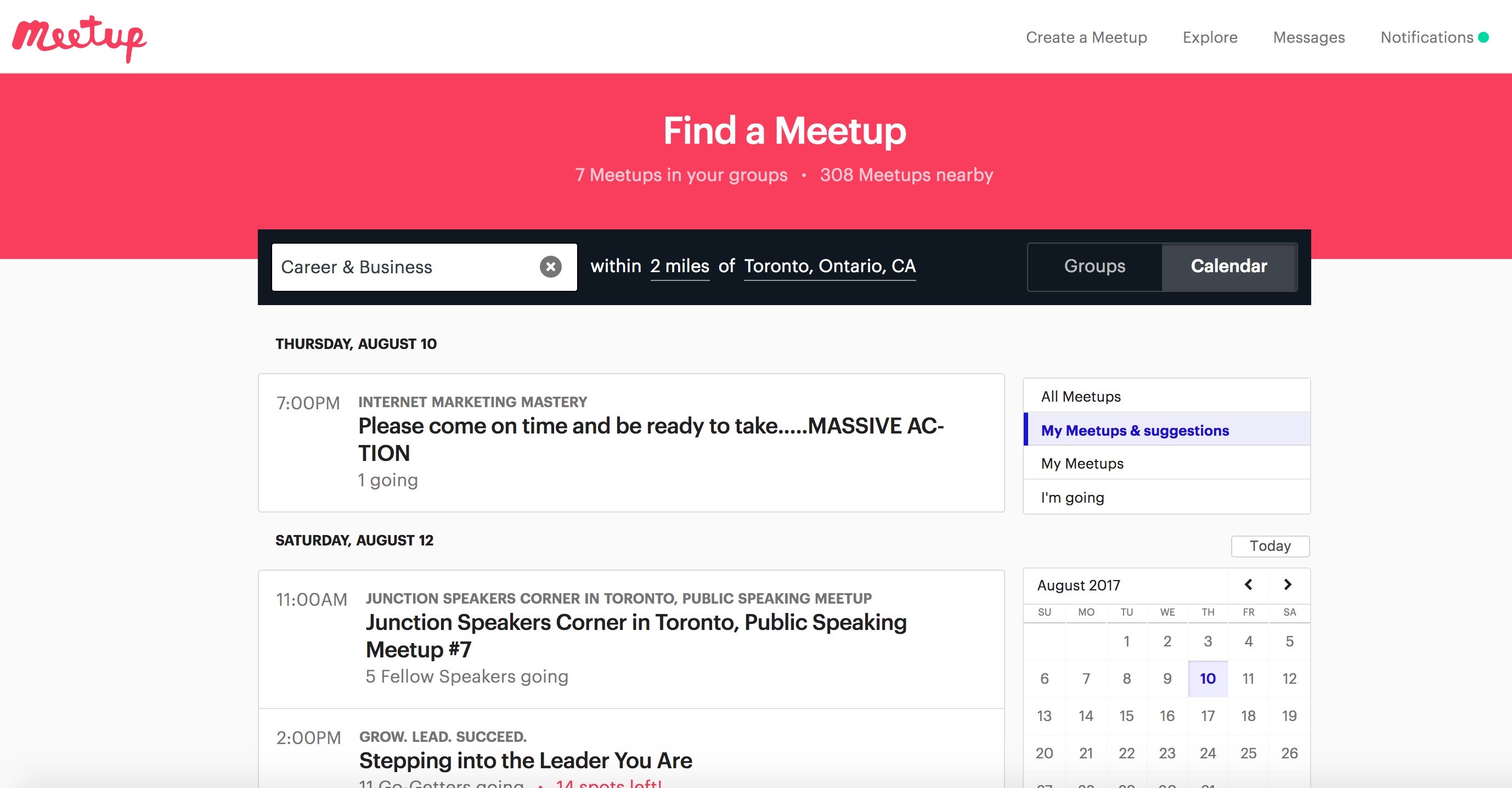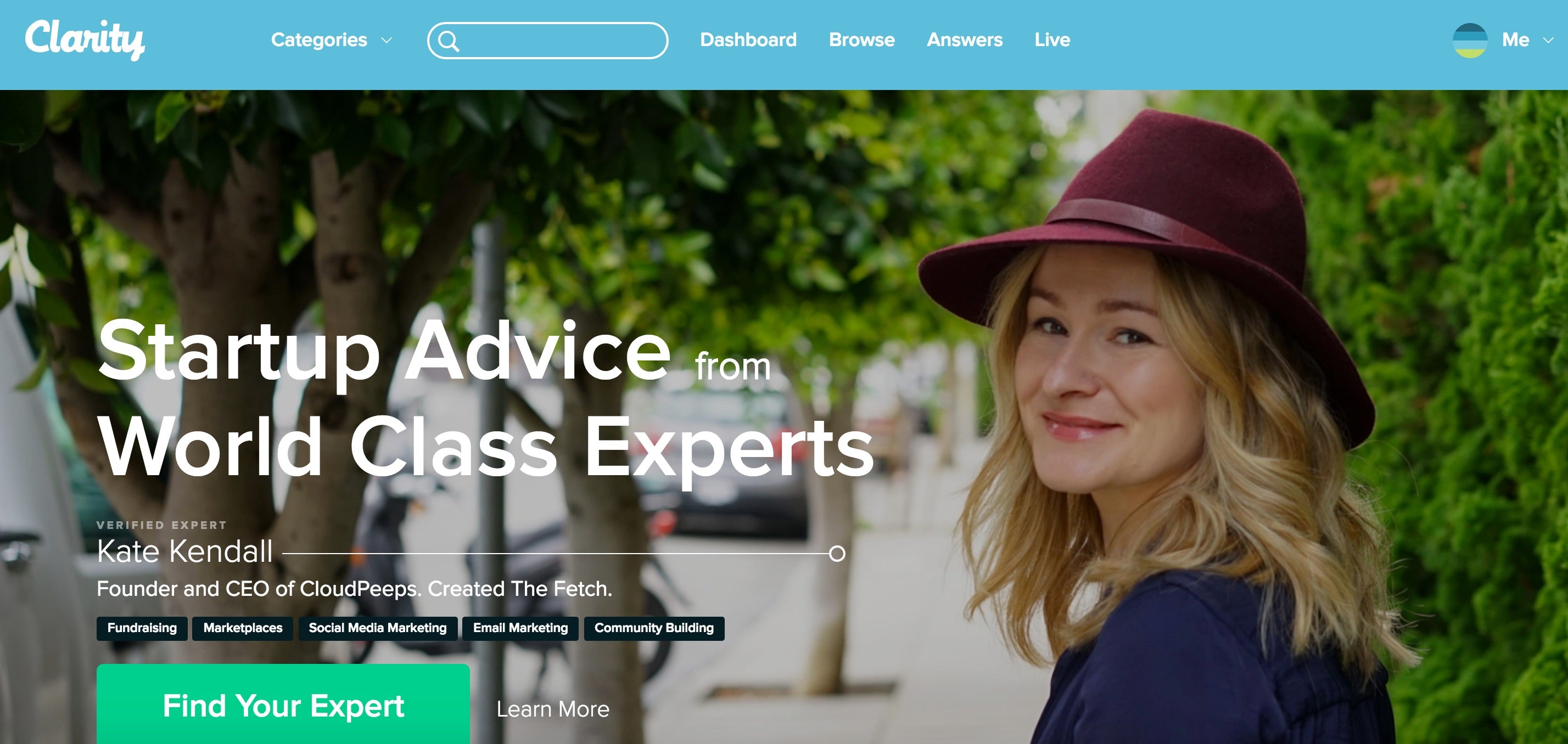Successful entrepreneurs, or professionals in any field, aren’t made overnight. It takes them years of effort, of trial and error, to amass all the experience and knowledge that got them where they are today.
At some point, they were in the same spot as anyone just starting out: unsure how to navigate the hurdles before them, looking up to someone who was somewhere that they wanted to be.
These people who have “been there and done that” offer one of the most understated resources entrepreneurs can benefit from: mentorship.
A good mentor can help you avoid common mistakes early on, solve troublesome problems, and offer up valuable connections and advice, while helping you realize your full potential as a person.
What is a mentor, exactly?
A mentor is someone who has priceless experience that you don’t have yet, who has made all the necessary mistakes on the road to success, learned from them, and is willing to pass on those lessons to you.
A mentor doesn’t just have a good grasp of the specific knowledge you need to succeed, like how to create better Facebook ads or how to bring a product to market. They also possess an intuition that’s been honed over the course of many years doing what you hope to do, that can help you confirm, abandon, or shape some of your own business instincts.
A mentor helps you find your best self faster than time alone would allow.
Mentorship occurs naturally in nearly every field. But in the world of business, especially, you’d be hard-pressed to find a success story that didn’t involve a mentor or three along the way:
- Warren Buffett credits Benjamin Graham with helping to shape him into a savvy investor.
- Richard Branson says his uncle taught him how to harness his eccentricity into entrepreneurial endeavors.
- Oprah Winfrey recognizes the influence that poet Maya Angelou had on her, not just through her writing, but as a friend and mentor.
In fact, according to a survey of over 180 business owners conducted by UPS, 70% of the entrepreneurs that underwent mentoring had businesses that survived for 5 or more years. That's double the rate of businesses that didn't have the advantage of a mentor.
But perhaps most important to note is that a mentor isn’t a consultant. A true mentor won’t charge you a fee for their advice. Nor will they do the work for you. A mentor, in an ideal situation, becomes a valuable friend. They see you as a good investment of their time because they see value in you as a person, and vice versa.
That’s because mentorship is part of a cycle of good karma that involves giving back to those who would walk a similar path because someone did the same for you.
Anyone who’s achieved some success in life will likely reflect on their journey and wish they knew back then what they know now. And while time travelling is off the table, imparting those experiences and lessons in the next generation is a nice alternative.
The right (and wrong) way to pursue mentorship
Mentorships are formed in all kinds of ways—there’s no single method to follow.
However, a mentor should ideally be someone whose work or career you genuinely admire. A mentorship is a relationship after all and it needs to be built on mutual respect.
A good mentor:
- Has a visible, verifiable track record of success in the area you want to grow in.
- Is open, friendly, and appreciates curiosity.
- Is passionate about their field and craft (this often translates into a desire to teach).
- Has a great work/life balance and can spare a few moments to chat to you on a regular basis.
- Is thoughtful and considerate, and doesn't make up assured answers to questions just to appear knowledgeable.
- Has been mentored in the past and understands how valuable mentorship is to someone who's just starting out.
Many mentorships happen organically, starting off as friends or colleagues or as teacher-and-student. Sometimes the mentor sees potential and promise in a mentee and believes it’s worthwhile to cultivate it by offering advice or a sounding board for their ideas. Sometimes, the mentee has to actively seek out the experience and advice of the mentor.
But it’s also possible, through networking and cold outreach, to forge these relationships from scratch yourself.
Using cold outreach to find a mentor
I've written often about the value of cold emailing as a way to network, create partnerships, and develop your business. But it's also a good way to seek out advice from experienced strangers.
Here’s a template you can adapt that’s based on cold emails that have both worked for me (looking for career advice) and on me (people asking me for career advice).
Hi [FIRST NAME]!
I stumbled across your profile on [WHERE YOU FOUND THEM] while I was doing some research into [WHAT YOU WANT TO DO]. I really liked [COOL WORK THEY DID].
I’m looking to [YOUR GOALS AND WHAT YOU’RE DOING NOW TO ACHIEVE THEM] and would love to learn more about how you [WHAT THEY'VE DONE].
If you have some time this week—even if it’s for 15 minutes over a coffee, Skype or phone call—I’d love to pick your brain.
Have a great week!
Ideally, you’ll want to get some face time with a potential mentor—whether it's in-person or over Skype—so you can establish a better connection with them and show them that you’re serious about success.
Keep in mind that these people, due to their own success, likely have an inbox full of people asking them for things. So try to be as accommodating as possible.
Here are some tips for entering into your initial conversation with a potential mentor:
- Prepare a list of specific questions about both their story and your business.
- Start by telling them about yourself so they have context around your pursuits and your problems.
- Be conscious of their time and express your gratitude towards them (if you’re meeting them offline, offer to pay for the coffee, drinks, or food).
- Towards the end of the conversation, ask them if it’d be okay if you two stayed in touch or if you could shoot them questions if you ever have any.
But above all, get a sense of how much you can be yourself around your potential mentor. A good, lasting mentorship is built on a solid foundation of friendship, openness, and a mutual interest in a particular field.
Maintaining your relationship with a mentor
One of the common misconceptions about mentorship is that the structure of a mentor and mentee relationship is like that of master and student (think Yoda and Luke Skywalker or Batman and Robin).
But that puts the responsibility on the teacher's shoulders.
Instead, look for mentorship opportunities where friendship, honesty, and mutual respect can co-exist with a large gap in experience between you and your mentor.
According to Lois Zachary, author of The Mentee's Guide:
"We've come a long way from the mentor as the sage on the stage. Rather, the mentor is the guide on the side that asks questions that take people to deeper places of insight. It's a dance, it's a partnership, and a mentor should not be giving the answers, they should be raising the questions and should be helping the mentees to seek answers to their own questions."
Don't expect your mentor to do anything for you or even show you how to do something (there's Google for that). Instead, rely on your mentor to check your own gut, validate your work, and learn how to think about your problems.
When you’re learning, you’re not supposed to look good. Be vulnerable and be curious. Mentorship is all about asking questions.
Often, the most stupid thing about so-called 'stupid questions' is not asking them.
It can be hard to gauge how much commitment you'll get out of a potential mentor. Some will offer you a more structured relationship where you regularly meet to check-in on how you're both doing.
Others will offer the occasional advice when you ask for it or help you out over a Google Hangout when you get stuck. Whatever the case, the relationship should be founded on friendship and a common passion. Don't ask for too much of your mentor, but if you'd like a bit more structure ask in a considerate manner that respects their time: "I get a lot of value out of these conversations, what do you think about making this a regular thing—maybe once a month?"
The opportunity to watch you grow and develop and realize your ambitions is the main reason a mentor will give you their time. But you should also try to offer them something in return—whether it’s to contribute one of your skills to their project or just to spread the word about their latest venture. Even a "thank you" card or email is a nice token of appreciation.
6 places to look to find a good mentor
There are a ton of different ways to go about finding a good mentor. If you're lucky, you'll find one or two over the natural course of your life's journey. But if not, you can hopefully find one with experience you can tap into in the following ways.
1. Find a mentor match on Ten Thousand Coffees
Ten Thousand Coffees, for lack of a better analogy, is like a dating site for local mentorship and networking.
It streamlines the natural cycle of mentorship by letting you list your profile and browse a database of professionals who are open to networking or mentoring the next generation.
You can reach out to mentors you're interested in and, as the name suggests, ask them to sit down for a cup of coffee and talk about careers.
It's organized into "hubs" so you can find people not just by skill set or industry, but by university, college, and company networks.
2. Meet experienced entrepreneurs at Meetups
Networking is easier in-person for a lot of people. And the internet has done a great job of coordinating passionate people with shared interests into offline "meetups".
You can find these events on sites like Meetup or Eventbrite, and sign up for the ones that are relevant to you. Be sure to check out these networking tips before you attend.

3. Hop on a Clarity call
While Clarity isn’t exactly a mentorship platform (you have to pay to speak with these mentors), it does offer on-demand consultant calls with experienced professionals and entrepreneurs.
It breaks experts out into specific areas of business (business development or pitching to investors) for focused phone calls that cost anywhere from $1 to $10 a minute.
There’s also a place where you can post your questions and get answers from knowledgeable entrepreneurs, similar to Quora.

4. Ask around in forums and online communities
There are also plenty of online communities for experienced and new entrepreneurs to talk about their business. These forums are a good place to seek out mentors directly, as long as your post communicates your promise as an entrepreneur and you put yourself out there in the right places.
Reddit is home to all manner of subreddits where you can ask around, including r/entrepreneur or r/smallbusiness. Do a search for "mentor" in these subreddits for examples of how others have asked about mentorship opportunities in the past.
If you're a Shopify store owner, there are also plenty of Facebook Groups you can join to ask for feedback or casual mentorship, including:
Be wary of any offers you find through these channels. Sometimes they're consultants who only want to offer you paid services. Other times, they might not be as experienced as the image they like to project.
But I have seen fruitful relationships come out of asking questions or for feedback in these places.
5. Connect with potential mentors on LinkedIn
LinkedIn should be a fairly obvious avenue for connecting with potential mentors.
But did you know that 89% of senior leaders on LinkedIn are interested in giving advice?
Not only do LinkedIn profiles let you search for specific skills or experience that you’d want in a mentor, but you can also reach out to them directly with a connection request even if you don't have their email.
6. Form a Mastermind Group
Entrepreneurship can be a lonely adventure of lifelong learning, but with a mastermind group it doesn’t have to be.
A mastermind group is a form of peer-mentorship. It’s an ongoing support group of like-minded people working on their own projects while helping each other out, sharing experience and talent, and keeping each other on track with regular meetings.
To learn more about forming your own mastermind group, be sure to check out our article about the topic.
Mentorship: A cycle of learning and giving back
There’s no cutting corners when it comes to growth. You need to throw yourself into your problems and figure things out as you go. But you can accelerate your growth by finding a friend in a mentor, gaining access to free experience that they already paid for themselves with time and effort.
A mentor doesn't have to be a single person either. As long as you're curious and put yourself out there, you can learn from all kinds of people with different experiences that you don't have yet.
Those who benefit from mentorship also tend to be compelled to give back. I've found this to be especially true within the Shopify community. Maybe you will too. And so the cycle continues with today's entrepreneurs helping tomorrow's see their own version of success.
Have you had a mentor who has helped you grow? Give them a shout out and share your story in the comments below!
